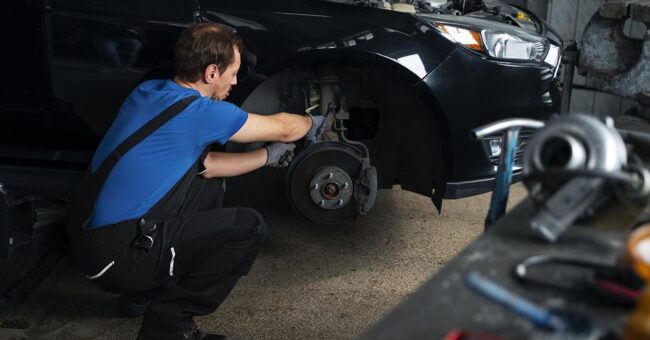
Regular car maintenance is not merely a suggestion, it is a necessary endeavor to ensure the longevity and reliability of your vehicle. Treating your car to routine checks and services can forestall significant malfunctions and help you avoid costly repairs down the road. By understanding and practicing essential maintenance tips, you can potentially extend your car’s lifespan, maintain its performance, and ensure its safety on the road. In the following sections, we’ll delve into some fundamental maintenance rituals that every car owner should embrace.
Regular Oil Changes
Importance of Oil Changes
One of the most critical and essential forms of maintenance for your vehicle is the regular oil change. The oil in your car acts as a lubricant for the engine’s moving parts, reducing friction and carrying away heat. Over time, oil breaks down due to high temperatures and collects debris, which can diminish its protective properties. Changing your car’s oil at recommended intervals ensures that the engine continues to run smoothly and efficiently.
Recommended Frequency
The frequency of oil changes can vary based on the type of vehicle, oil used, and your driving habits. However, a good rule of thumb is to change conventional oil every 3,000 to 5,000 miles or every six months, whichever comes first. If you’re using full synthetic oil, it can typically last between 7,500 to 10,000 miles. Always consult your vehicle’s owner’s manual for the manufacturer’s recommendations.
Benefits of Regular Oil Changes
Regular oil changes help to extend the engine’s life and maintain its performance. Clean oil minimizes wear and tear on the engine components and helps to prevent overheating, while also ensuring fuel efficiency is at its peak. Furthermore, consistent oil changes are a proactive means to spot and address small issues before they escalate into larger, more costly problems, ultimately safeguarding your investment.
Tire Care
Proper tire maintenance is key to ensuring both the safety and efficiency of your vehicle. Tires in good condition will not only provide better traction on the road but also help to maintain fuel efficiency and overall vehicle handling. Here are a few tire care practices that every car owner should regularly carry out:
Checking Tire Pressure
Regularly checking the tire pressure is critical for the performance and longevity of your tires. Under-inflated tires can lead to uneven wear, reduced gas mileage, and even tire failure, while over-inflation can make the tires more susceptible to damage from road debris and potholes. It’s advisable to check tire pressure at least once a month and before long trips, adjusting it according to the manufacturer’s specifications found in the owner’s manual or on the driver’s side door frame.
Rotating Tires
Tire rotation is the process of moving tires to different positions on the vehicle to ensure even tire wear. This practice helps maintain balanced handling and extends the overall life of the tires. Most manufacturers recommend rotating tires every 5,000 to 7,500 miles, which can often coincide with oil change intervals for convenience.
Importance of Proper Tire Maintenance
Keeping tires in good condition is vital for the safety of passengers and the performance of the car. Properly maintained tires provide the optimal level of grip required for safe braking and cornering, reducing the risk of accidents. Furthermore, well-cared-for tires contribute to better fuel economy and will save you money in the long run by delaying the need for tire replacement. Regular checks and maintenance keep you aware of the condition of your tires and contribute to the smooth running of your vehicle.
Fluid Checks
Importance of Checking Fluid Levels
Regularly monitoring your car’s fluid levels is crucial to ensure the smooth operation of various systems and to prevent damage due to low or deteriorated fluids. Each fluid serves a specific function, from cooling the engine to ensuring your brakes respond effectively. Neglecting fluid levels can lead to reduced performance, system failure, or even irreversible damage to your vehicle’s components, leading to expensive repairs.
Types of Fluids to Monitor
To keep your vehicle running smoothly, pay attention to the following key fluids:
- Engine Coolant: Prevents overheating and freezing of the engine.
- Brake Fluid: Essential for proper brake function.
- Power Steering Fluid: Keeps the steering smooth and responsive.
- Transmission Fluid: Facilitates gear shifts and lubricates the transmission.
- Windshield Washer Fluid: Maintains visibility through the windshield.
- Engine Oil: Already discussed above under regular oil changes.
How to Check Fluid Levels
Each fluid in your vehicle has a specific method of checking:
- Engine Coolant: Check the reservoir when the engine is cold. The level should be between the “Low” and “Full” marks.
- Brake Fluid: Locate the brake fluid reservoir and check the level against the high and low markers.
- Power Steering Fluid: Use the dipstick in the power steering reservoir to check the level, and add fluid if it’s low.
- Transmission Fluid: This is typically checked with the vehicle in neutral or park and running to ensure an accurate measurement via the dipstick.
- Windshield Washer Fluid: Simply look at the reservoir to determine if more fluid is needed.
Make sure to consult your owner’s manual for the exact procedures and to identify the correct types of fluids for your vehicle.
